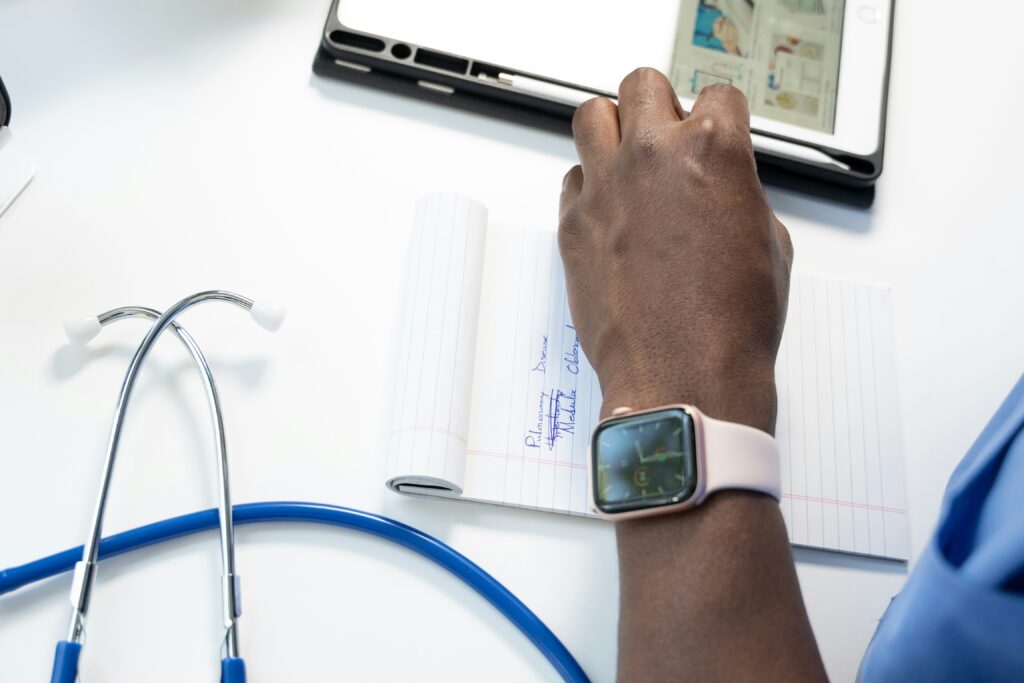Medical transcription is a vital process within the healthcare industry, ensuring accurate and comprehensive documentation of patient encounters. This practice involves converting voice-recorded medical reports dictated by healthcare professionals into written text format. It's role is crucial for maintaining precise medical records, which are essential for effective patient care and legal compliance. This article delves into what is medical trascription, its importance, specifics and the skills required to excel in this field.
Table of Contents
ToggleUnderstanding Medical Transcription
The Process
Medical transcription begins with healthcare providers, such as doctors, nurses, and other medical professionals, dictating detailed notes about patient encounters. These dictations can include medical histories, examination findings, diagnoses, treatment plans, discharge summaries, and other relevant information. Medical transcriptionists listen to these recordings and transcribe them into written documents. These transcriptions are then added to patients' electronic health records (EHRs) or physical medical files.
Tools and Technology
Modern medical transcription relies heavily on advanced technology. Transcriptionists use specialized software that allows them to play, pause, and rewind audio recordings efficiently. Many also utilize speech recognition software, which converts spoken words into text. However, human transcriptionists are still essential for reviewing and editing these texts to ensure accuracy and address any discrepancies or errors produced by automated systems.
Importance of Medical Transcription
Accuracy and Precision
Accurate medical transcription is critical for ensuring that patient records are complete and precise. Any errors or omissions in transcription can lead to incorrect diagnoses, inappropriate treatments, and potential harm to patients. Transcriptionists must have a keen eye for detail and a thorough understanding of medical terminology to ensure the highest levels of accuracy.
Legal and Regulatory Compliance
Maintaining detailed and accurate medical records is not only important for patient care but also for legal and regulatory compliance. Healthcare providers are required to keep comprehensive records to meet standards set by regulatory bodies such as the Health Insurance Portability and Accountability Act (HIPAA). Medical transcriptionists play a key role in ensuring that these requirements are met, protecting both patients and healthcare providers.
Supporting Healthcare Providers
By handling the documentation process, medical transcriptionists free up valuable time for healthcare providers, allowing them to focus more on patient care. Accurate transcriptions also aid in continuity of care, enabling different providers to access detailed patient histories and treatment plans, which is crucial for coordinated and effective healthcare delivery.
Skills Required for Medical Transcription
Proficiency in Medical Terminology
A strong understanding of medical terminology is essential for medical transcriptionists. This includes knowledge of anatomy, physiology, pharmacology, and various medical procedures. Familiarity with these terms allows transcriptionists to accurately interpret and transcribe complex medical dictations.
Attention to Detail
Medical transcriptionists must be detail-oriented to ensure that every aspect of a medical dictation is accurately captured. This involves careful listening, precise typing, and diligent proofreading to correct any errors or inconsistencies.
Excellent Listening and Typing Skills
Transcriptionists need excellent listening skills to accurately capture dictations, especially when dealing with accents, fast speech, or background noise. High typing speed and accuracy are also crucial to efficiently produce transcriptions within required timeframes.
Familiarity with EHR Systems
As much of modern medical transcription is integrated with electronic health record (EHR) systems, transcriptionists should be proficient in using these platforms. This includes understanding how to input and retrieve information within EHR systems securely and accurately.
Conclusion
Medical transcription is a cornerstone of effective healthcare documentation, ensuring that patient records are precise, comprehensive, and up-to-date. This process supports healthcare providers by allowing them to focus on patient care while maintaining legal and regulatory compliance. The role of medical transcriptionists requires a unique set of skills, including proficiency in medical terminology, attention to detail, and excellent listening and typing abilities. As technology continues to evolve, the importance of skilled medical transcriptionists remains paramount in delivering high-quality healthcare.











